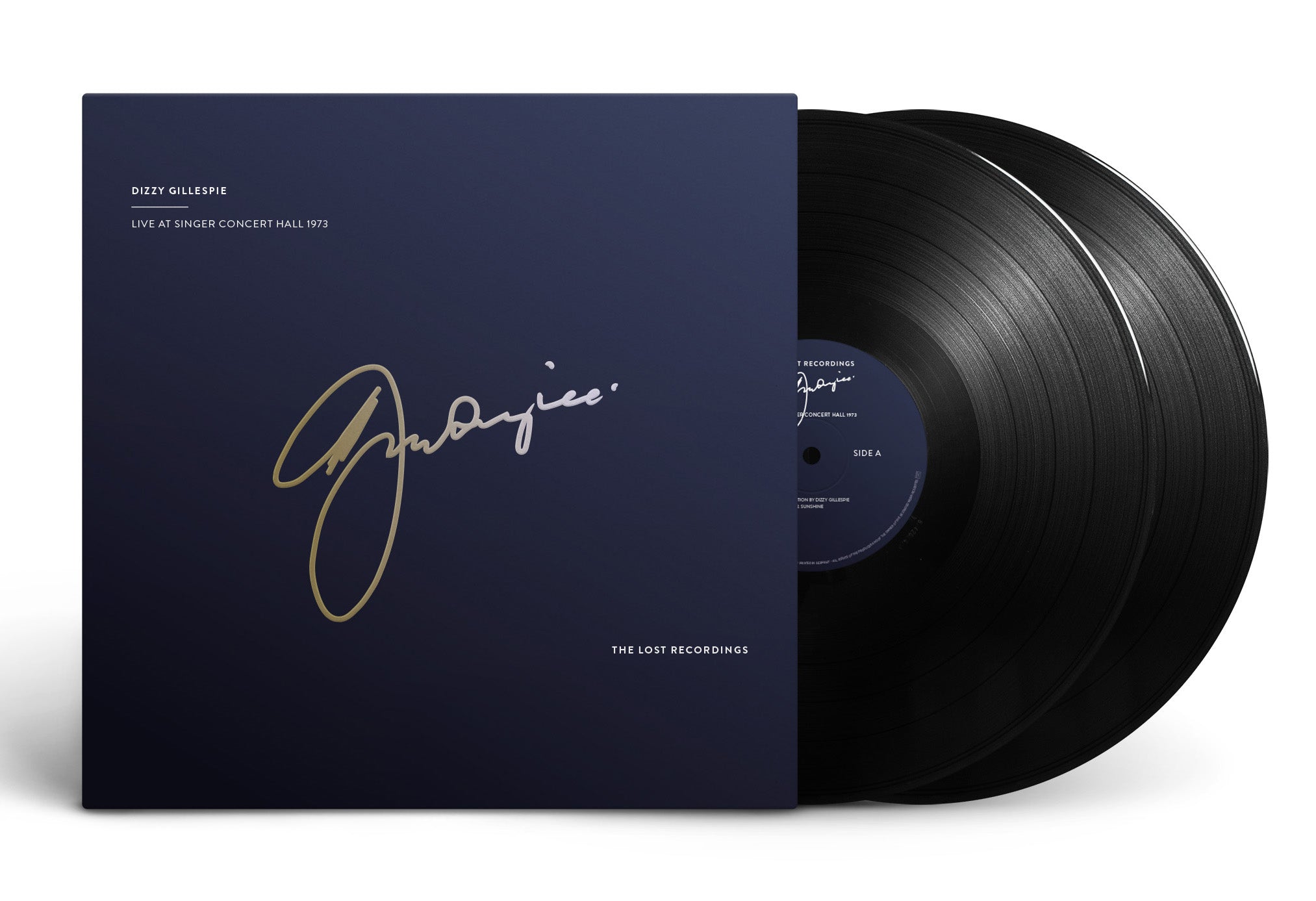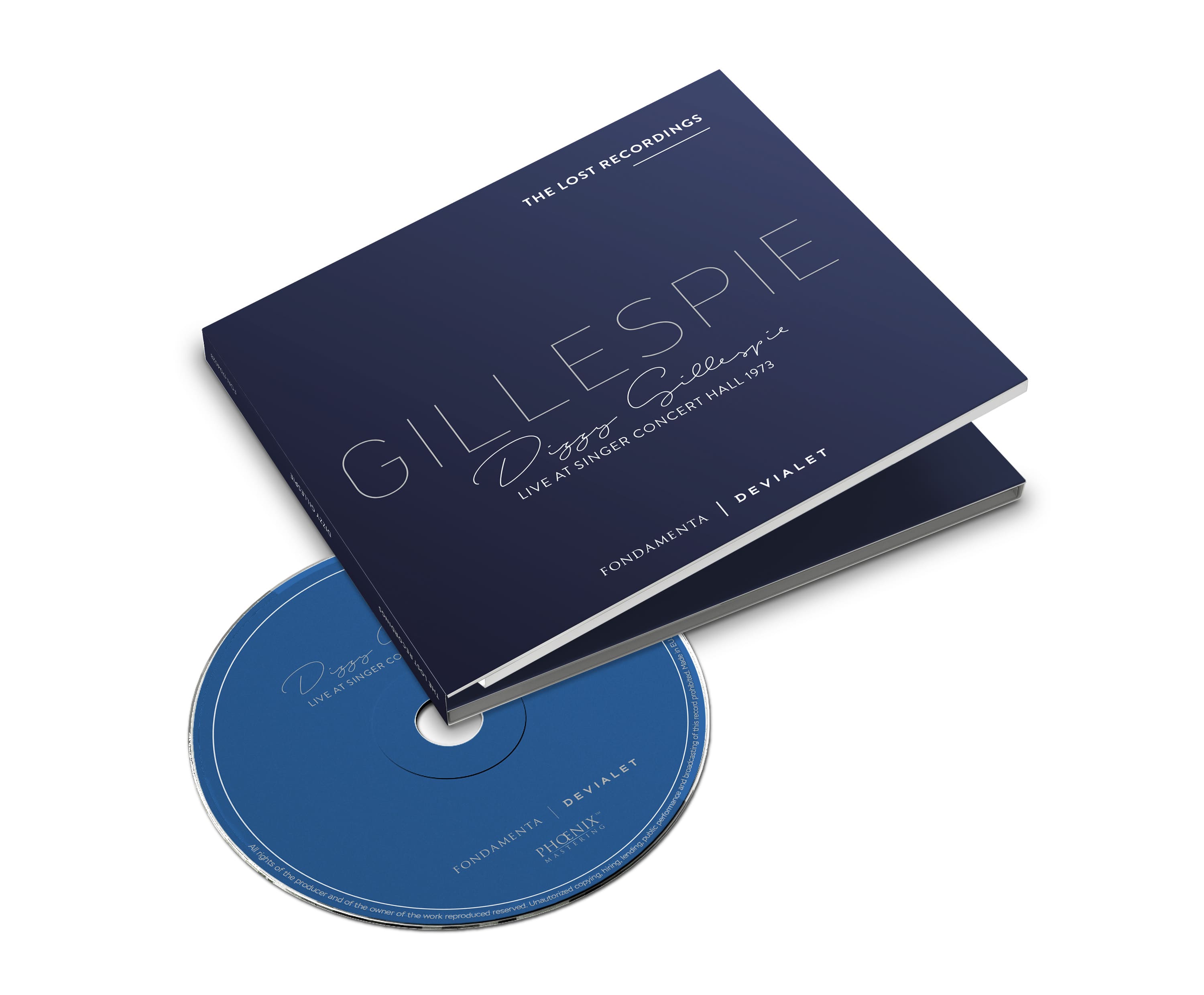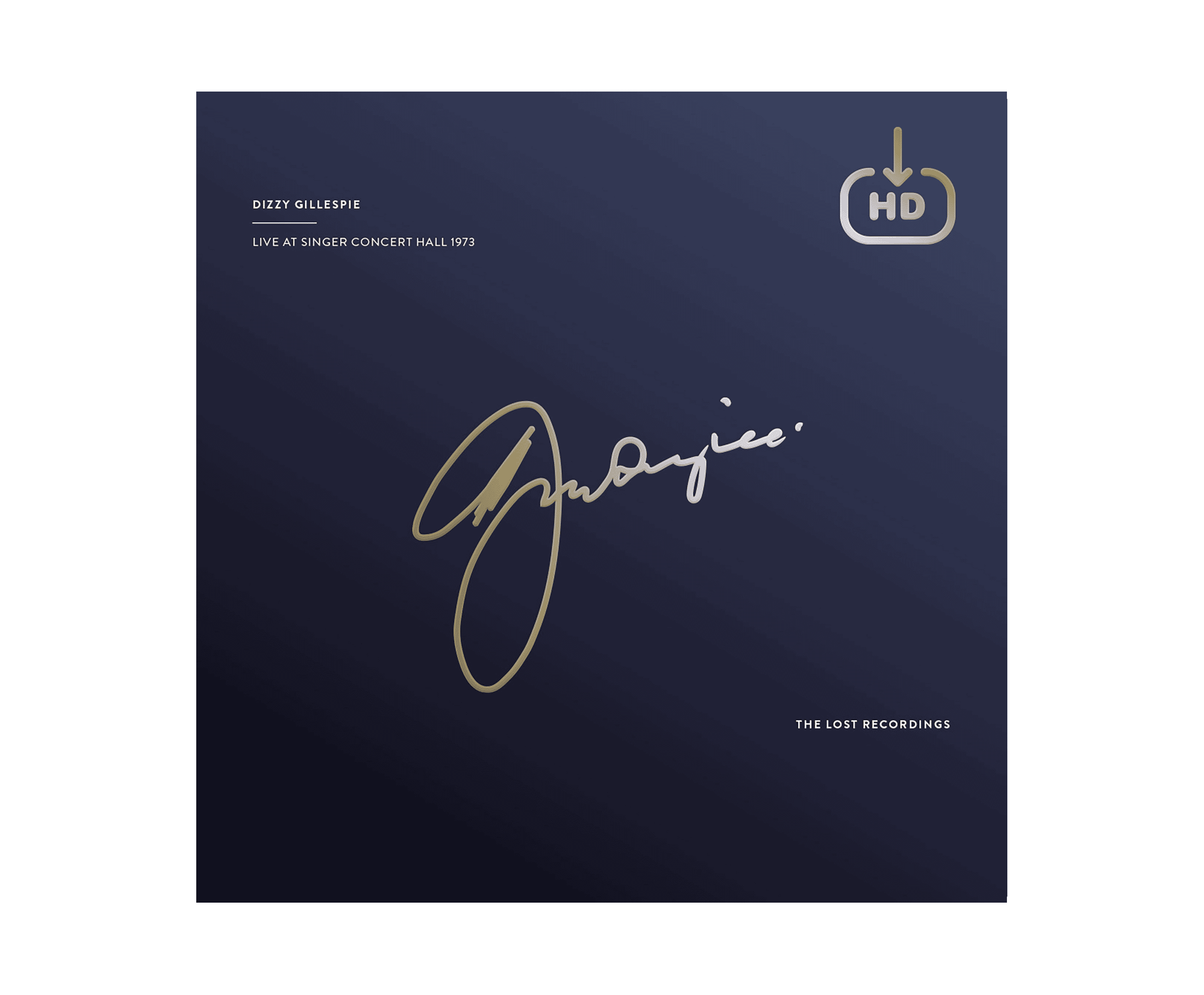DIZZY GILLESPIE
Live at singer concert hall 1973
Subscribe to our newsletter to stay informed about new releases.
A musical childhood
Dizzy Gillespie was born in 1917 in South Carolina. His father was an amateur bandleader who introduced his son to the basics of many instruments. However, at the age of 10, Dizzy lost his father and taught himself the trumpet and trombone. The first style that Dizzy returned to shows strong inspirations from Roy Eldridge, his idol. In 1937, he was hired to fill a position formerly held by Roy Eldridge in Teddy Hill's band.

A legendary career
During the 1930s and early 1940s, Dizzy played in several bands led by jazz greats such as Cab Calloway, Ella Fitzgerald, Duke Ellington and Billy Eckstine. After setting up his own orchestra in the late 40's, which was considered one of the best big jazz ensembles. Dizzy was noticed by his virtuosity on the instrument but also by his arrangements described as "complex". Dizzy impressed many artists and jazz fans around the world, his repertoire was diverse and oscillated between the bop approach and Afro-Cuban jazz. For many fans, Gillespie is one of the greatest jazz trumpeters of his generation and of all time along with Louis Armstrong. Very comfortable technically and harmonically, it didn't take much for Dizzy Gillespie to blow everyone away, he was able to play the highest registers of the trumpet while being able to improvise in more than precarious situations from which he always seemed to get out. Dizzy is an icon and brought many characteristics to modern jazz such as the interval of the augmented eleventh or the typical phrases in his improvisations that have become jazz clichés. Talented and multi-hatted, he was also an ultra-renowned composer with a breathtaking repertoire that includes a list of great bebop hits that became jazz standards.

The end of a life and the beginning of a legend
Despite his age and the fact that his most innovative period is behind him, at the end of the 50s, he continues to perform at the highest level, while recording with several formations, big band, small group, duo, with big names like Oscar Peterson or Count Blasie, he was able to do everything. By continuing to tour internationally, Dizzy Gillespie became a true ambassador of music.
At the beginning of the year 1983, on January 6 more exactly, Dizzy Gillespie dies of pancreatic cancer.


